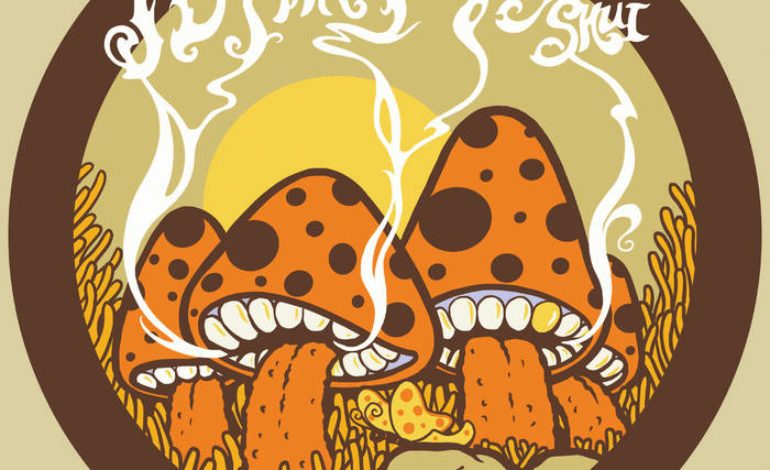

Not living up to its full potential
If your music is “bare-bones,” then those bare-bones better be amazing. It’s strange to think about restraint coming from a member of the Butthole Surfers, the only band with an anal sex reference in their name to get anywhere near the mainstream. Yet, on his second solo record, their bassist J.D. Pinkus eschews tape editing and flashy effects in lieu of a banjo, his voice and just a few post-production tricks. While this stripped-down formula can sometimes result in immersion, Fungus Shui is too scant and repetitive to really suck listeners in. This is baffling, given that the record came from a man who cut his teeth on one of the strangest and most transgressive cult acts around.
On paper, there’s no reason that Pinkus can’t pull off a country album. The banjo across both his solo records sounds crisp, discordant and potent, and his guttural voice should fit right in. He can even write a bouncy melody or two when he puts his mind to it. “Good Trouble,” one of the best tracks off his first release, Keep on the Grass, features the closest thing to a pop hook Pinkus has ever crafted, and “You Look Funny When You Cry,” from Fungus Shui, picks up the slack with an impassioned vocal delivery and mind-melting guitar shredding.
Sadly, there’s not much on Fungus Shui that matches this energy. It’s a slower, more atmospheric album, which would be fine if those atmospheres actually connected. On Keep on the Grass, “I Like the Way You Have Fun” proved he could craft a tense, ghostly atmosphere with dreamy vocals and tape layering that cranked up the suspense. It also managed to do so in five minutes rather than eight—case in point: the clunky opening track on Fungus Shui, “Fungus Shui Trinity.”
As a discordant banjo rings out and develops, the mix is flooded with whooshing sounds and incessant warbles. Even as guitars break out into a chorus effect during the song’s closing minutes, nothing contributes to any sort of crescendo and the track just sort of stumbles toward a conclusion. The album honestly isn’t psychedelic enough; there are warbles and tape activations on “Pussyfoot Down” and “Woke Up Dead,” but that’s about it. The opener is also the only place with noticeable vocal manipulation in an attempt to sound dream-like as Pinkus hoarsely moans from somewhere in the back of the mix.
Pinkus isn’t a bad performer, and he knows his limitations and how to use them, especially on tracks like “Shovel” and “Slow Crawl,” where he leverages his unrefined singing into an effective sense of instability. But without any interesting layering or mixing, these eight minuscule tracks tend to meander and leave no impression. When an album is this short, with many songs barely eclipsing two minutes, every note has to count, and, having come from a band that wasn’t known for its refinement, Pinkus seems like he’s in an unideal position to achieve that.
